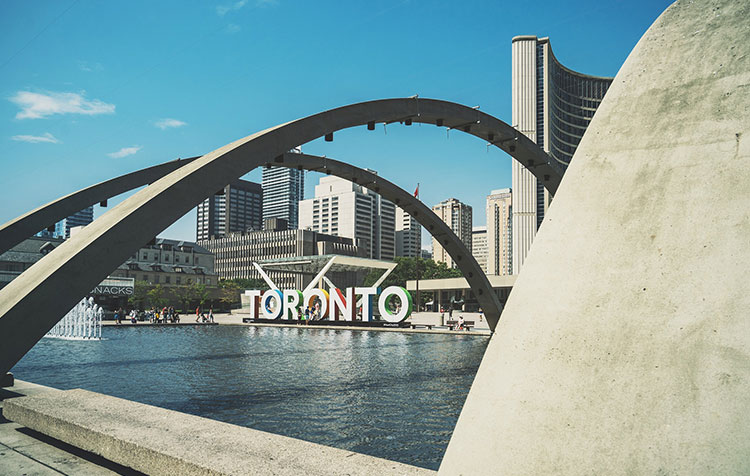



Canada, a country that features consistently as one of the happiest countries on the planet, has always been popular for its beautiful landscapes and high standard of living with world-class cities like Montreal, Toronto, Vancouver, Ottawa and Quebec, the country is also renowned among international students to pursue higher studies. Canadian degrees and credentials are given importance equivalent to the degrees of U.S. and other European countries.
Every year more than 200,000 international students choose to study in Canada as the inflation rate of the country is low compared to the other countries. The universities of Canada charge low fees than their counterparts whilst maintain excellent education quality. When other countries settled for less or no technological innovations, the educational institutions of Canada never failed to remain at the forefront of technology trends.
The country has a reputation for excellence in different sectors including computer and information technologies, transportation, telecommunications and engineering. The country is also cherished for promoting multicultural diversity and creating a welcoming environment. It makes sure the people's customs and traditions are well-maintained and their dignities are respected.
Canada is renowned for a life outside campus too. Whether the interest lies in exploring nature or wildlife, spending alone time or outdoors, one doesn't have to cover long distance looking for these activities. From the big skies of prairies to the rugged hills and mesmerising coastline of the Atlantic Provinces to the magnificent Rocky Mountains of Alberta and Niagara Falls, Canada has plethora of natural beauty to offer.




The cost of education in Canada is low compared to other countries like UK Australia and New Zealand. The country offers a great opportunity to international students to save a considerable amount of money on education courses without compromising with the quality.
However, the tuition fees varies across different provinces and programs. The table given below can help you get an idea of the average cost for international students in different provinces of Canada for different fields.
| Provinces | Cost of Undergraduate Studies in Canada | Cost of Graduate Studies in Canada |
|---|---|---|
| Quebec | $9,168 - 10,518 | $8,268 - 20,000 |
| Alberta | $6,293 - 11,078 | $5,298 - 19,200 |
| Ontario | $6,900 - 16,204 | $5,432 - 29,000 |
| British Columbia | $4,462 - 15,870 | $2,272 - 17,499 |
| Newfoundland | $7,260 | $1,896 - 3,549 |
| Manitoba | $4,940 - 6,900 | $3,795 - 9,685 |
| New Brunswick | $7,063 - 10,720 | $5,610 - 8,465 |
| Prince Edward Island | $7,510 | $6,100 |
| Saskatchewan | $7,779 - 10,890 | $5,313 |
The minimum amount required by the Department of Home Affairs to issue a Canadian student visa is $10,000 for 12 months (excluding the cost of spouse or any other dependent family member.
| Type | Expenses |
|---|---|
| Off Campus Lodging | $250 - $750 per month |
| School / University Provided Home-stays | $ 400 - $800 per month |
| School / University Provided Residence /Dormitory | $3000 - $7500 per year |
| Bus Fare One Way | $2.00 - $3.00 |
| Groceries | $150 - $200 per month |
| Utilities & Miscellaneous | $300 per month |
| Average Restaurant Meal | $10.00 - $25.00 per person |
| Movie | $11.50 - 13 Approx |
| Air ticket | $500 to $2000 |
| Health / Medical Insurance | $300 to $500 |
International students, while studying in Canada, can work up to 20 hours per week to meet their living costs. The country offers many part-time employment opportunities in different sectors including hospitality, travel, tourism, Food Service, etc. However, it is essential for an international student to get aware of the requirements and obligations of their visa.
While the international graduates are also allowed to work for 2 years. They can also apply for permanent residency after completing 1 year of working in the Canadian workforce.
Before applying for a job in Canada, you must get a Social Insurance number (SIN). It is a nine digit number that provides an access to government programs and benefits whilst allow employers to process payroll and inform Canadian Revenue Agency of the amount of money you earn.
Canada's Education system attracts students from all over the world. Though there is no federal department of education, it is maintained to a high standard by each of the provinces or territories and encompasses both publicly-funded and private schools.
It is also divided into three areas including Primary Education, Secondary/Higher Secondary Education and Tertiary Education.
Primary Education: It starts at five years of age with kindergarten and runs for seven or eight years.
Secondary Education: It starts at twelve or thirteen years of age and runs for three to four years.
Higher Secondary: It starts at sixteen or seventeen years of age and runs for two years
Teritiary Education: It includes both higher education and Vocational education and training (VET).
Whether you're recently graduated, want a career change or need to gain advanced skills in your existing profession, the vocational schools in Canada offers a plethora of study options customised to individual's interests and goals. The vocational schools cover a range of fields and also help gain knowledge in a variety of occupations.
Those who, in any case, do not meet the requirements of an education program can opt for foundation studies. With a duration of one year, foundation course is usually taken before starting a university program. It helps student improve academic performance to study for a full degree.
International students who want to pursue education in Canada need to get an admission before applying for a student visa. Following is the process to get admission:
All the International students are required to obtain a Student Authorization and a Visa before going to Canada for studies and meet the requirements of the Canadian Immigration Regulations. The candidate applying for the visa must give the authority a period of 2 months for the Visa to be processed.
| Programs | English Test Score |
|---|---|
| Diploma programs | IELTS - Overall band score of 5.5 with no band less than 5.0 PTE – Overall 45; no less than 36 |
| Bachelor’s Degree | IELTS - Overall band score of 6.0, no less than 5.5 PTE – Overall 50; no less than 45 |
| Graduate Diploma | IELTS - Overall band score of 6.5 no less than 6.0 PTE – Overall 6.5; no less than 50 |
| Master Programs | IELTS - Overall band score of 6.5; no less than 6.0 PTE – Overall 6.5; no less than 50 |








